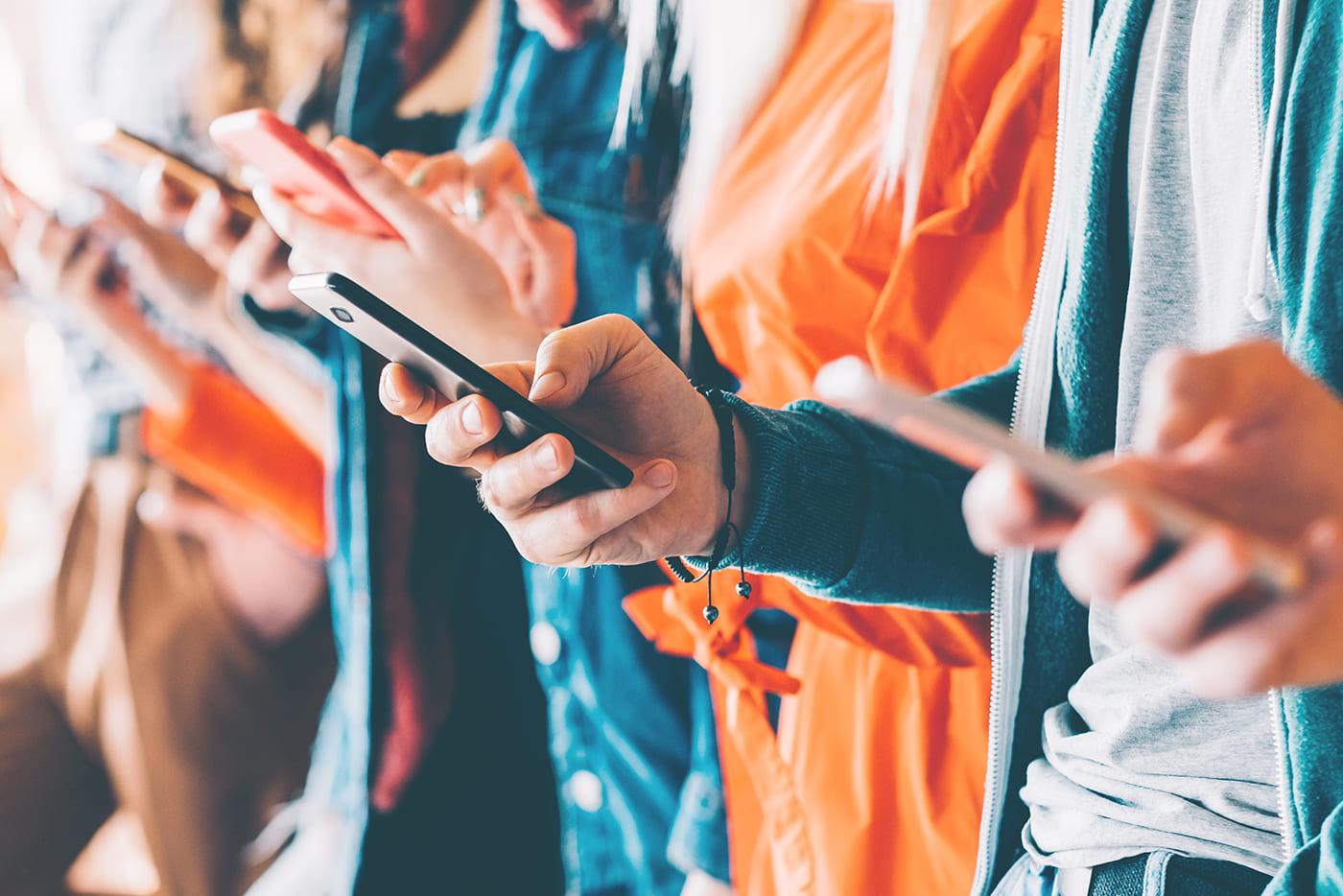Digital Addiction: Should You Be Worried?
24 January 2023
Are you addicted to your phone? How about being on the internet or interacting on social media? Or what about online games?

If you believe you may be addicted to your digital devices, you’re not alone. Check out these sobering stats:
● Worldwide, an estimated 210 million people suffer from social media addiction
● Americans check their phone an average of 344 times per day, which is approximately once every 5.5 minutes
● Nearly half of Americans believe they are addicted to their cell phone
● The average American will spend the equivalent of 44 days on their phone in 2022 – that’s nearly a month and a half!
Developing a compulsive need to use your digital devices is a hallmark of an addiction, and it’s a rampant problem in our society today.
And digital addiction doesn't just interfere with our relationships. It also saps our concentration, so it takes longer to get into a creative flow. And the pandemic has only exacerbated our dependence on our digital devices.
Designed to Be Addictive
Social media sites and apps like Snapchat, TikTok, Facebook, and Instagram are specifically designed to be addictive. Big tech giants have major incentives to keep you on their platforms as long as possible. After all, the more time we spend on a site or app, the more advertising revenue they bring in.
Tech companies use behavioral design to create highly addictive apps that keep us coming back again and again. “Like” buttons and comments features hook us in and make us want to return to the apps to check our “scores,” and the endless scroll of most social media platforms guarantees that there’s no stopping point to our consumption of updates, images, and ads.
These features aren’t an accident. They’re part of an overall plan to maximize the amount of time we spend on our digital devices, regardless of the potential negative impact on our mental and emotional health.
How to Curb Digital Addiction
If you feel like digital addiction is significantly interfering with your life and your ability to function in a healthy way, you may want to take action to open up a little more space in your brain.
“It gets into philosophical questions: how is the time I’m spending on my phone in subtle ways affecting my ability to be a good parent, spouse or friend?” says Dr. Anna Lembke, author of Dopamine Nation and a global leader in the treatment of addiction. “I do believe there is a cost – one that I don’t think we fully recognize because it’s hard to [see] when you’re in it.”
But living a truly smartphone or digital device-free life isn't practical these days, especially with remote work, digital payments, banking, and so many other aspects of our daily lives happening online. A better approach is to manage addictive behavior by moderating our use of our phones, and developing a better, healthier relationship with our screens.
Here are some practical strategies for limiting the amount of time you spend online or on your phone:
● Reset your brain’s pathways and gain perspective on your relationship with your screens by doing a digital detox of 12-24 hours
● Set aside a certain amount of time each day to just be still with your thoughts
● Put your phone in automatic “bedtime” mode, which will turn off all notifications at a certain time of night
● Set time limits for apps or websites using tools like Freedom or Space
● Consider turning off all notifications on your phone
● Delete your most distracting or time-consuming apps from your phone
● Set up a “one screen” rule in your house, which means you can’t use more than one screen at a time (i.e. no watching TV while scrolling through your social media feeds!)
If you want a more hard-core tactic for curbing cell phone addiction, you can use a kSafe time-locking container. Place your phone in the container, set the timer for the time you’d like to have your phone out of reach, and the container will remain locked until the timer goes off. Once the timer is set, you cannot reset the clock or access your phone early.
Breaking Free of Digital Addiction
Hopefully, these tips have given you some ideas about how to spot and counteract the dangers of digital addiction, so you can have a healthier relationship with the digital devices in your life.
Related Articles
Dreamforce 2025: Why I’m Excited About Salesforce’s Agentic Enterprise Revolution
By now, “smart” versions exist of just about every home appliance, gadget and gizmos we can think of. However, manufacturers continue[...]
The Top 5 Technology Trends For 2026
By now, “smart” versions exist of just about every home appliance, gadget and gizmos we can think of. However, manufacturers continue[...]
Dreamforce 2025: Why I’m Excited About Salesforce’s Agentic Enterprise Revolution
By now, “smart” versions exist of just about every home appliance, gadget and gizmos we can think of. However, manufacturers continue[...]
Robots And AI Are Rewriting The Future Of Surgery
By now, “smart” versions exist of just about every home appliance, gadget and gizmos we can think of. However, manufacturers continue[...]
Space, AI, And The Future Of Human Potential
By now, “smart” versions exist of just about every home appliance, gadget and gizmos we can think of. However, manufacturers continue[...]
Invisible Intelligence: Nokia’s Networks With A Sixth Sense
By now, “smart” versions exist of just about every home appliance, gadget and gizmos we can think of. However, manufacturers continue[...]
Sign up to Stay in Touch!
Bernard Marr is a world-renowned futurist, influencer and thought leader in the fields of business and technology, with a passion for using technology for the good of humanity.
He is a best-selling author of over 20 books, writes a regular column for Forbes and advises and coaches many of the world’s best-known organisations.
He has a combined following of 4 million people across his social media channels and newsletters and was ranked by LinkedIn as one of the top 5 business influencers in the world.
Bernard’s latest book is ‘Generative AI in Practice’.










Social Media